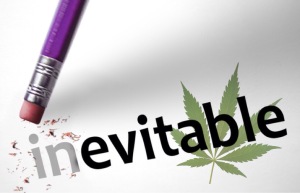
Definition of EVITABLE: capable of being avoided
- Paid signature gatherers?
- Repeal discussed as support plummets in CO?
- National Polls showing more opposition.
- Alaskan opposition above 50%
Among other recent developments beginning to erase the mantra of “inevitability” for marijuana legalization, “medical” marijuana questions failed to make state ballots in Ohio and Arkansas in the 2014 election cycle.
Pot proponents now say they need paid signature gatherers. “You need paid help for an effort like this and what’s disappointing is that we can’t convince enough donors to contribute to get the necessary resources to put us over the top,” said John Pardee, president of the Ohio Rights Group.
If you have to pay people to get signatures to legalize pot, how is that “the will of the people?”
When the Marijuana Policy Project funded paid signature collectors for a marijuana signature drive in 2012 in North Dakota, eleven paid signature gatherers were arrested and charged with facilitating election fraud and making false statements.
Some attentive state elections division official noticed something fishy about the signatures being submitted. Upon further investigation, it was clear that ballot fraud had been perpetrated. Nearly a third of the signatures were bogus.
The same game plan has been deployed every state before and since:
- set up and a “compassionate care” committee propped up by out-of-state funding,
- call it “medical” marijuana,
- put out blanket messaging stating that this is about relief for the profoundly ill,
- but write a law to deceive by making marijuana available to anyone while bypassing the approvals and professional qualifications expected through the pharmacy system.
- gather signatures to get a marijuana question on the ballot.
If the question makes the ballot and passes — generally voters think granny will get her “medical” marijuana at the local pharmacy, but citizens discover:
- there’s pay-to-play influence peddling to land dispensary licenses,
- the complex law (rarely read or understood by average voters) puts in place a system of marijuana growers and dealers who have no professional qualifications,
- if implemented, citizens watch while cash is raked in by pot shops where fewer than 3% of customers have the profound conditions mentioned in the law like cancer, aids, or MS,
- after the chaos created by “medical marijuana” gets out of control, pot proponents go for full legalization of an increasingly potent drug promising the states big tax revenues on pot sales,
- Tax revenues fall far short of promises.
Now we’re beginning to see…the rest of the story:
- 83% of school resource officers report more marijuana in schools
- elementary age kids bring pot to school to sell
- ER visits and poison control calls for pot poisonings spike
- 2 confirmed deaths following consumption of marijuana edibles by customers lead to psychotic episodes
- traffic deaths involving marijuana double
- butane hash oil extraction in kitchen labs result in fires and explosions in random neighborhoods
- pediatricians see increases in marijuana addiction, and THC positive babies are born to mothers who use marijuana in pregnancy — not realizing THC crosses the placenta and because it is fat soluble is stored in breast milk.
- the black market thrives
- illegal interstate sales via postal services skyrockets.
- the scientific body of evidence on marijuana’s impact on normal brain development broadens substantially
- aggressive marketing of marijuana to young people is done through advertising, celebrity endorsements, and product placement on TV, online, and in movies.
Next?
The marijuana backlash begins.
The legalization experiment fails.